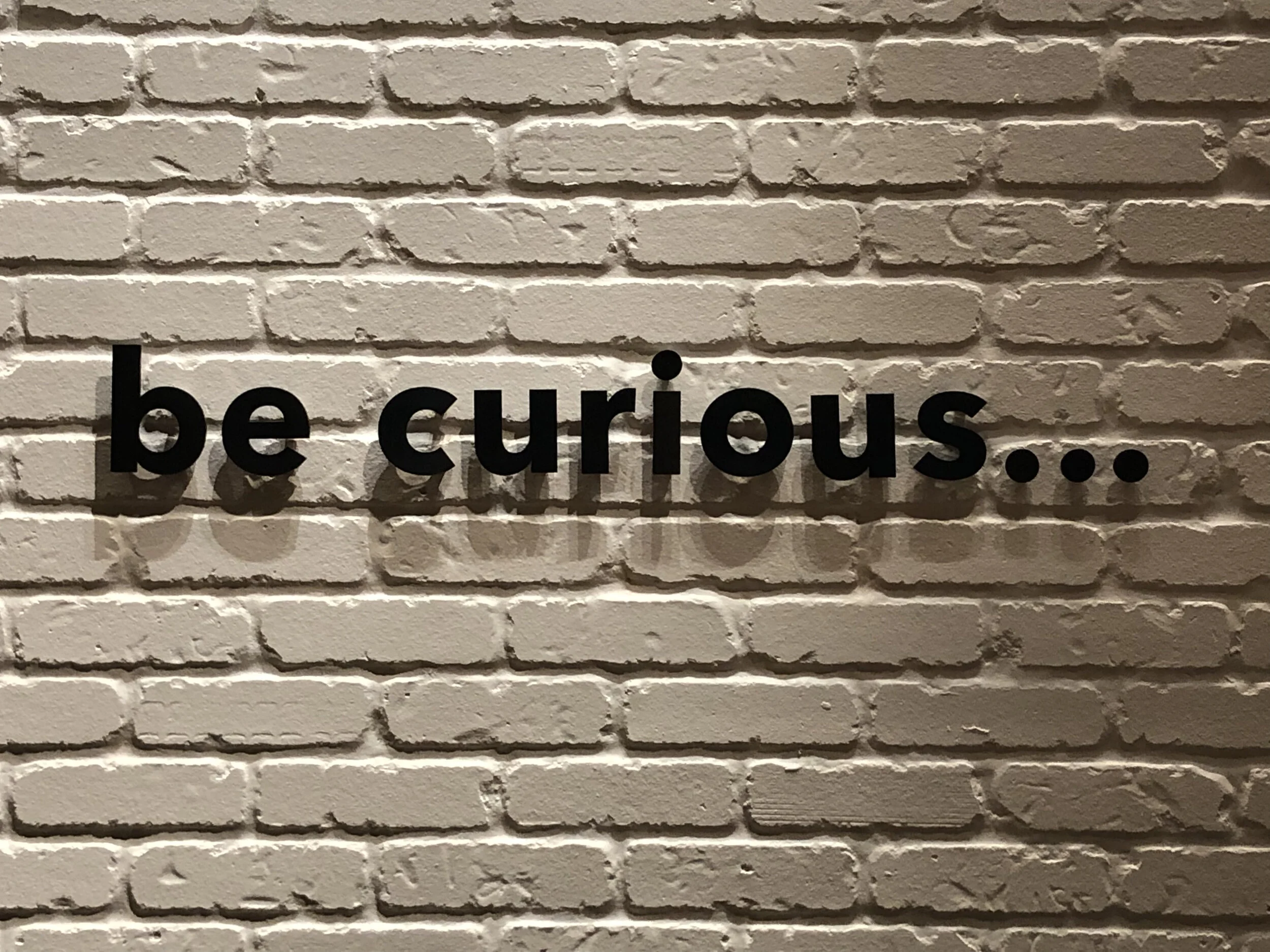As I write this, my wife and I are at Dallas Love Field on a layover, headed back home to Nashville from our adventure to the Northwest. (I wrote about our first ever Amtrak trip here.) We feel full, sated -- and yet wanting more. The trip was so full of discovery, of learning about a part of the country where we had never spent any time to speak of, and of reconnecting with friends that are now dearer than ever.
Graduation 2019
Cultivating Curiosity
We are all born curious. Show me a baby who isn't drawn to shiny objects or who doesn't believe everything is intended to be put in the mouth. Then the baby becomes a toddler and all of a sudden the entire house has to be childproofed. Everything at eye level is fair game to be explored and often dismantled.
As a young child, I was a voracious reader. We were living in Australia, where, at least at the time, there was no kindergarten like we have in the US, and children started right into Grade 1 at the age of five. I was already reading when I started school in Perth, and I remember my teachers scrambling to keep me stocked with books. Seems I couldn't get enough.
As I've written and spoken about before, we moved back to the US halfway through my fourth grade year, and on the return trip my senses were assaulted by the sights and sounds of exotic lands and foreign tongues. Once again, I couldn't get enough.
Then something happened.
The thing is, I don't know what. Somewhere along the line -- perhaps it was puberty -- I lost my love of reading and the curiosity behind that love. Up to that point I remember loving to read about all kinds of things -- I was simply interested in the world and everything in it.
By my high school years my interests had narrowed to two main areas: music and foreign languages. I excelled in all my subjects, but some of them didn't require that much effort. I was indeed hungry to make progress in my two chosen areas, but I don't remember deriving much satisfaction from anything else.
I'm sorry to say my college years were not much different. Music and foreign languages still dominated my brain space (foreign language eventually gained the upper hand) -- along with an overactive social life.
I was well into my years living in Europe that I began to really notice things. To pay attention to a broader array of areas, such as world events and how they affect each other. Or how math and science cannot be entirely separated from, say, music or philosophy, or even theology. In fact, this growing sense that all things are somehow connected has become a driving force in (re)shaping my world view. And my fascination with how other cultures live and think plays right into this.
In this season of my life, I consider it not only an important aspect of my life, but a calling, to somehow create sparks that trigger curiosity in others -- especially curiosity about people from cultures or experiences unlike ours.
Regardless of your political persuasion or the outcome of the 2016 US elections, we all must admit that, now, more than ever, we are in great need of regaining and fostering cultural curiosity. Just as I allowed my mind to become dulled by who knows what -- teenage preoccupations, then too many college friends (yes, I think that's possible), we can as adults allow ourselves to be lulled to sleep by the familiar. Falling asleep in our own echo chamber.
Is it possible to make someone curious? Perhaps, perhaps not. But just as a parent provides toys, activities and games that appeal to the innate curiosity of a child, we can most certainly make things available to whet the imagination of those who are asleep...while continually feeding the imagination of those who are curious.
Season 2 of the World to the Wise podcast aims to do just that. Stay tuned! If you're already a subscriber, we would appreciate your taking a minute to write a brief review.
What adventures has your curiosity led you to?
How to Foster Curiosity
I was talking to a friend the other day who is a coffee guru. The man knows his coffee. He also knows tea. And he also knows a lot about human nature. The conversation somehow came around to the subject of curiosity. As an educator, I am among the precious few whose students generally show up ready to learn. The majority of the students we teach at the Academy are a teacher's dream, like baby birds waiting for you to drop tasty morsels in their mouths.
But what do you do when the curiosity isn't there?
My friend put the question in the context of his trade: coffee. "I put the coffee in front of them and have them taste it," he said. "Then I ask them questions: What do you taste? What does it remind you of? What does the taste evoke?"
A teacher who knows his or her material will always have plenty to teach. Sometimes it's much harder to stop and ask questions. But if a lecture doesn't include opportunity for students to ask questions, they are not being required to process things for themselves.
Socrates was famous for his method of asking questions, sometimes even playing the devil's advocate and making his students defend their opinions. This not only feeds curiosity, but it also develops the all-important skill of critical thinking.
This of course doesn't begin in the classroom, but at home. The wise parent will make it a habit to show her child the world and its beauty, all the while asking questions to allow the child to respond to wonder.
What keys have you found that foster curiosity in those in your charge?




